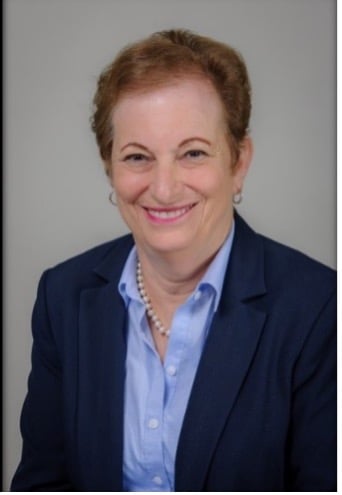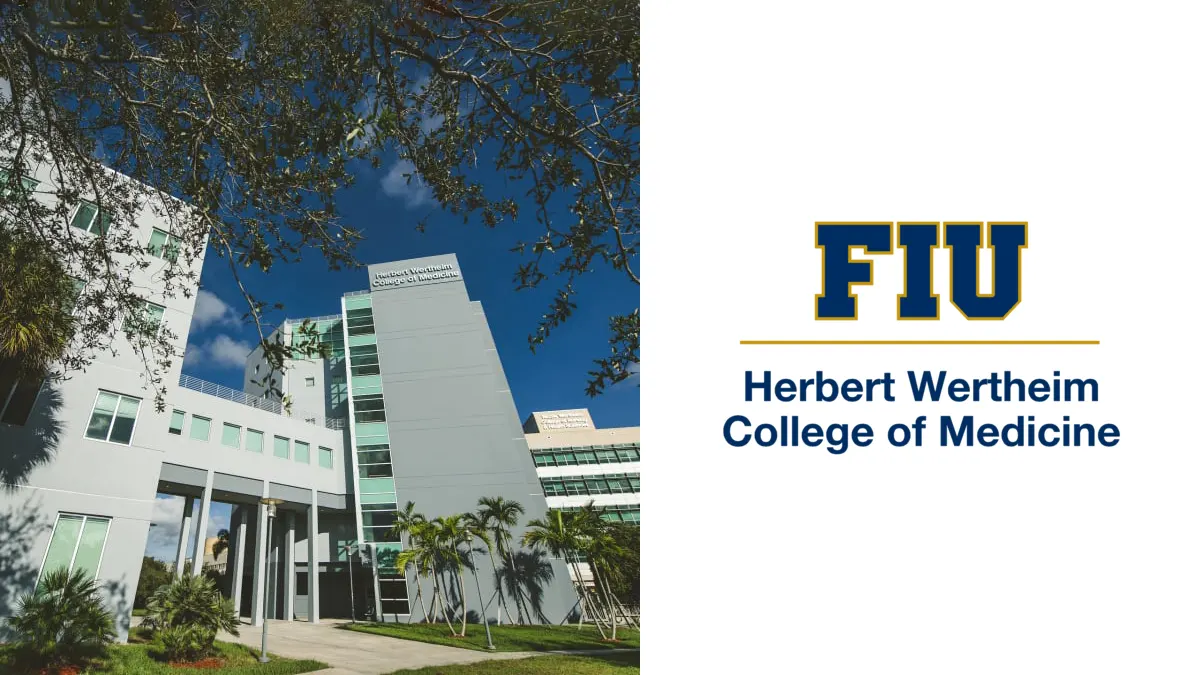Last Updated on January 25, 2023 by Laura Turner

Barbra Roller, Ph.D. (she/her), is the Assistant Dean for Academic Affairs at the Florida International University (FIU) Herbert Wertheim College of Medicine (HWCOM). She also serves as the Administrative Director of the Graduate Certificate in Molecular and Biomedical Sciences post-baccalaureate program and as an Associate Professor in the Department of Cellular Biology and Pharmacology. She also is a Faculty Fellow of the FIU Honors College.
Tell us about your post-baccalaurate program.
Dr. Roller: The Graduate Certificate in Molecular and Biomedical Sciences program at Herbert Wertheim College of Medicine (HWCOM) at FIU aims to provide academic enhancement and professional development to applicants to health-related professional degree programs. The graduate certificate program strengthens the biomedical knowledge and professionalism skills of applicants, improving their qualifications for application to medical school or other health-related professional degree programs. The program comprises eight graduate-level courses. Six biomedical courses (worth three credits each) include Medical Cell Biology and Biochemistry, Medical Molecular Biology, Medical Microbiology and Immunology, Medical Physiology, Pathology and Medical Histology, and Medical Genetics.
Two sequential one-credit Professional Skills in Medical Sciences courses emphasize valuable learning techniques and the importance of keeping abreast of the latest biomedical research developments. Program faculty also help students improve nonacademic factors and attributes essential for successful application to medical school. Professionalism is an essential component of all courses.
The basic science courses are taught by the Herbert Wertheim College of Medicine faculty and are similar to those taught during the first year of medical school. The topics are presented in interactive lectures, team-based learning, and small-group or whole-class discussion sessions. In addition, students must evaluate current scientific literature related to course topics. The courses reinforce basic science concepts through examples of human diseases and experimental data and are fundamental for a better understanding of clinical sciences. Discussions emphasize the implications of research data on the practice of health care. The program encourages students to be self-directed learners, critical thinkers, and decision-makers. Students are required to search, analyze, and utilize scientific literature.
What are some unique extra-academic opportunities your program offers?
These are both academic and extra-academic opportunities:
- Professionalism evaluations twice each semester with formative feedback
- Mandatory Attendance
- Mandatory Advising by Academic and Administrative Program Directors
- Mandatory meetings with Learning Specialist
- Workshops on learning strategies/test-taking strategies
- Weekly Quizzes and four major exams in each course
- Quiz and Exam Reviews
- Innovative format for Office Hour Presentations
- Active learning and group projects
- Personal Statement and AMCAS/AACOMAS application assistance
- Mock interviews
- Opportunities for Leadership through GCP Student Council
- Optional attendance at HWCOM seminars
- Optional participation with MD volunteer and outreach programs, such as STEM Saturdays and MedSWISH
Why should a student pick your post-baccalaureate program over a close competitor/rival?
This program has amazing outcomes. Our outcomes include getting students into medical school (or other health professions) and their success in medical schools as far as performance. We have also had two cohorts match into competitive residency programs and specialties. We know that our program is quite rigorous, but students who make it through our program are extremely well-prepared to do well in any medical school they choose to attend.
For the students who matriculated to the FIU MD program, we track their progress in our MD program and have comparison graphs between our GCP alumni and the rest of the cohort. We have done this for the last five years, and our GCP alumni outperform the rest of their cohort in the M1 year and are equal to or exceed in M2 and M3 courses. We also track the specialties that the students enter and where they go for residencies.
Post-Baccalaureate Application Insights
For the graduate certificate program, we have a two-stage application. We have the application to the University Graduate School and also the certificate departmental application. The departmental application is the only place where the student will provide their personal statement.
What do you notice when you are first screening or reviewing an application?
We first look at the individual’s overall GPA and BCPM. This graduate certificate is purely an academic program, and we wish to select students we feel can succeed academically. We state that the overall GPA and BCPM should be at least 3.0. No MCAT is required to apply, as we encourage students to take the MCAT after the program (or to retake if they already have taken the MCAT before matriculation into the program).
What stands out to you in a negative way when screening/reviewing applications?
A poor GPA and also a poor letter from a recommender.
What types of nonclinical outreach/volunteer work have the biggest impact on an application, if any?
We do not give weight to this. That will be important when the student applies to medical school. For us, we focus on academics.
There is a lot of discussion on the importance of diversity and inclusion in health education and training. How does your selection process truly balance experiences, attributes, and metrics throughout your selection process?
This is a great question. However, I am answering it only for the graduate certificate and not the MD program. For our certificate program, the majority of the students are Hispanic due to our institution’s location in Miami. However, since this is a certificate only, we do not consider the applicant’s race/ethnicity in the selection process. We do look at their experiences, their attributes, and their metrics. We are concerned with selecting students that we feel this program can help.
Can international students attend your program?
Currently, this graduate certificate is only available for US Citizens or permanent residents since that is the requirement of our medical school. However, in my other capacities, I advise international students, and we use the MSAR to search for appropriate schools to which they can apply.
We get many questions from “reinventing students” who are worried that their low undergrad GPA would remain an anchor in application screening and review. Do you have advice for this constituency?
We tell our students how a medical school looks at their graduate GPA will vary. Therefore, they need a high graduate GPA and glowing letters from their graduate program faculty.
Finally, mental health challenges, disabilities, and neurodiverse thinking have become more common among applicants. What do you suggest to help these applicants present a desirable application to your program?
We suggest that students write their essays in a way that indicates that they have overcome whatever challenges they previously had.
Student Services and Financial Aid
Can students get scholarships once they are enrolled in your program? What are the conditions for being considered for these scholarships?
Specific Graduate Certificate scholarships are available for the program’s second semester, based on need and academic achievement.
What unique tools or programs does your diversity and inclusion office have that address recruitment, selection, and retention (students, graduate students, faculty)? How does it report its success to the community?
This is a good question. We have an Office of Diversity, Equity, Inclusivity, and Community Initiatives. (ODEICI). This office has as its charge the recruitment and retention of all students, faculty, and staff. To that end, we run several pipeline/pathway programs for underrepresented students in medicine, including those who are low SES and first-generation. Many of those program participants matriculate into the MD program or the graduate certificate program.
Closing Thoughts from Dr. Barbra Roller
Where do you want to be professionally in 10 years?
This is another excellent question. In 10 years, although I will be retired from the University (I am already in my mid 70’s), I hope to be still involved in advising of undergraduate, graduate, and medical students.
I hear many faculty exclaim that they could never get admitted, given the contemporary admissions process. Going back in time to when YOU were first an applicant, what would you tell yourself about successfully applying to your program?
Find out where your passion lies, and don’t let anyone deter you from your goal. Find the right mentors and know what you need to do to get to where you want to end up. However, at some point, you need to be realistic; not everyone needs to be an MD or DO, and there are many other ways to help people and have successful medical careers. I did not take the MD route but rather chose a Ph.D., and I have been in medical education.
